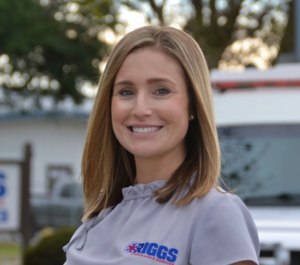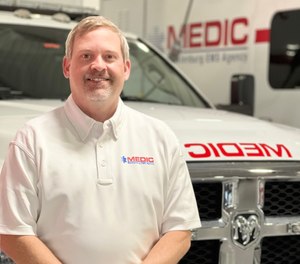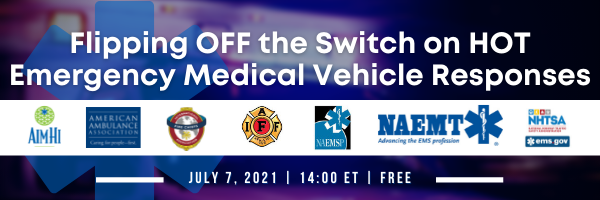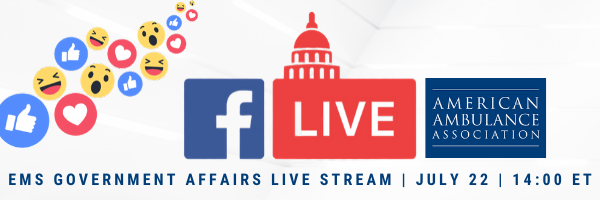EMS.gov Webinar | EMS Harm Reduction and SUD Treatment
|
|
|
|
|
|
|
|
|
|
|
|
Please either or Join!
In honor of Pedestrian Safety Month throughout October, the U.S. Department of Transportation Office of the Secretary will host a webinar to highlight USDOT and National Roadway Safety Strategy Allies in Action efforts and resources to forward pedestrian safety.
We hope you can join us!
Event: U.S. Department of Transportation Allies in Action Pedestrian Safety Month Webinar
When: Monday, October 23, 2023, from 1-2:30 p.m. ET
Where: Via Zoom (see registration link below)
Audience: Open to the public
Registration Link: Register now
Additional information on 2023 Pedestrian Safety Month and upcoming events can be found here and on the National Highway Traffic Safety Administration website.
March 15th // 12-1pm ET
The COVID-19 pandemic has had a significant impact on the healthcare system and has highlighted the need for healthcare reform. As the world moves forward from the pandemic, it is likely that the future of healthcare will be shaped by the need for cost containment while continuing to shift the healthcare delivery system to a more value-based care model.
For the past three years, we have seen new innovative approaches to healthcare delivery including the rapid adoption of telemedicine, and it is expected that this trend will continue in the post-pandemic world. Reimbursement reform continues to be an important issue for Emergency Medical Services (EMS) systems, as it affects their ability to provide high-quality care to patients. Despite the disruption that we have seen for the last three years, the EMS industry has continued to push forward with new innovative approaches to service delivery including the expansion of community paramedicine programs and the implementation of alternative programs like the Emergency Triage, Treat, and Transport (ET3) model. During this session, the panelists will discuss the current healthcare landscape, including what innovative programs may be here to stay and what it means for EMS Systems.
Jose G. Cabañas, MD, MPH, FAEMS
President, NAEMSP
Jonathan Oberlander, PhD
Professor & Chair of Social Medicine and Professor of Health Policy & Management
University of North Carolina – Chapel Hill
Paul Hinchey, MD, MBA, FAEMS
COO for University Hospitals in Cleveland, Ohio
Larry McMillan, MHA
Chief Compliance Officer & ET3 Project Lead, Wake County EMS
Randy Strozyk, MBA
President, American Ambulance Association
Lekshmi Kumar, MD, MPH, FAEMS
Medical Director, Grady EMS
Melissa Kroll, MD
Washington University, St. Louis
Limited options for professional growth and the lack of a clear career path are barriers to recruitment, retention and career longevity.
The EMS Burnout Repair Kit series, presented by EMS1 and Zoll, equips individuals at all levels in EMS with tools for dealing with the primary sources of burnout, helping them emerge as better, happier providers and more complete people.
In this installment, a panel comprised of individuals representing different career paths in EMS and leaders from progressive agencies will discuss resources for career advancement and resiliency, how to find the path that is right for you, and how agencies can support providers in advancing their careers.
Join the live discussion, March 1 at 1 p.m. CT
Carly Alley

Carly Alley is the executive director for Riggs Ambulance Service in Merced, California. Earlier in her career, Alley served as a firefighter-EMT in the U.S. Forest Service while earning her paramedic certification. After being hired by Riggs, she transitioned to the agency’s tactical EMS program, where she spent 10 years as the team leader before moving into administration.
Michael Fraley, BS, BA, NRP
-1.png?w=300&format=jpg&quality=87&crop=28%2C0%2C300%2C265)
Michael Fraley has over 25 years of experience in EMS in a wide range of roles, including flight paramedic, EMS coordinator, service director and educator. Fraley began his career in EMS while earning a bachelor’s degree at Texas A&M University. He also earned a BA in business administration from Lakeland College.
When not working as a paramedic or the coordinator of a regional trauma advisory council, Michael serves as a public safety diver and SCUBA instructor in northern Wisconsin.
John (JP) Peterson, MS, MBA

JP Peterson is the newly appointed executive director at Mecklenburg EMS Agency (MEDIC) in Charlotte, North Carolina. He started his career as an EMT in Chicago in 2000 and most recently served as vice president of Florida operations for PatientCare EMS Solutions.
He is licensed as a paramedic in Florida and North Carolina, and holds National Board Certification as an occupational therapist. He has completed Six Sigma Yellow Belt certification and is a graduate of the American Ambulance Association, Ambulance Service Manager Course. JP received the Pinellas County Commissioner, John Morroni Award for first responders in 2013.
JP is a past president of the Florida Ambulance Association. He is a member of the North Carolina Association of EMS Administrators as well as the AAA Bylaws, Professional Standards and Ethics committees.
Speaker: Scott Moore, Esq. | Share on Facebook
This funding opportunity will distribute $25.5 billion in additional Phase 4 General Distribution for EMS agencies and American Rescue Plan (ARP) payments for qualified rural providers who furnish services to Medicaid/CHIP and Medicare beneficiaries. It is critical for all #EMS providers to apply for this funding opportunity regardless of previous funding allocations. We have learned that many EMS providers did not apply for the Tranche 3 funding opportunity because they did not believe that they would be eligible to receive funds under the announced funding formula. Due to the limited number of applicants in Tranche 3, HRSA modified the formula and many who failed to apply would have received funds. We are recommending that all EMS agencies apply to receive the funding that they desperately need. The deadline for applying is 11:59 p.m. on October 26, 2021. There is no penalty for applying.
.png) Flipping OFF the Switch on HOT Emergency Medical Vehicle Responses!
Flipping OFF the Switch on HOT Emergency Medical Vehicle Responses!
Recorded July 7, 2021 | 14:00–15:15 pm ET | FREE Webinar
Download Slide Deck | Watch on YouTube
HOT (red light and siren) responses put EMS providers and the public at significant risk. Studies have demonstrated that the time saved during this mode of vehicle operation and that reducing HOT responses enhances safety of personnel, with little to no impact on patient outcomes. Some agencies have ‘dabbled’ with responding COLD (without lights and sirens) to some calls, but perhaps none as dramatic as Niagara Region EMS in Ontario, Canada – who successfully flipped their HOT responses to a mere 10% of their 911 calls! Why did they do it? How did they do it? What has been the community response? What has been the response from their workforce? Has there been any difference in patient outcomes? Join Niagara Region EMS to learn the answers to these questions and more. Panelists from co-hosting associations will participate to share their perspectives on this important EMS safety issue!
Kevin Smith, BAppB:ES, CMM III, ACP, CEMC
Chief
Niagara Emergency Medical Services
Jon R. Krohmer, MD, FACEP, FAEMS
Director, Office of EMS
National Highway Traffic Safety Administration
Team Lead, COVID-19 EMS/Prehospital Team
Douglas F. Kupas, MD, EMT-P, FAEMS, FACEP
Medical Director, NAEMT
Medical Director, Geisinger EMS
Matt Zavadsky, MS-HSA, NREMT
Chief Strategic Integration Officer
MedStar Mobile Integrated Healthcare
Bryan R. Wilson, MD, NRP, FAAEM
Assistant Professor of Emergency Medicine
St. Luke’s University Health Network
Medical Director, City of Bethlehem EMS
Robert McClintock
Director of Fire & EMS Operations
Technical Assistance and Information Resources
International Association of Fire Fighters
Mike McEvoy, PhD, NRP, RN, CCRN
Chair – EMS Section Board – International Association of Fire Chiefs
EMS Coordinator – Saratoga County, New York
Chief Medical Officer – West Crescent Fire Department
Professional Development Coordinator – Clifton Park & Halfmoon EMS
Cardiovascular ICU Nurse Clinician – Albany Medical Center
Ambulance Fleet Tips for Weathering the Chassis Shortage
Webinar | June 23, 2021 | 14:00 ET | Free to AAA Members
The American Ambulance Association and the Commission on Accreditation of Ambulance Services recently reported that a global semiconductor shortage has crippled the production of motor vehicle chassis—including those used by ambulance manufacturers and remounters. Ford Motor Company, which supplies approximately 70% of the ambulance chassis used in the US, halted production in mid-April. The end is not yet in sight, with the shortage of the critically important microchips predicted to run into 2022.
Join ambulance fleet experts from across the country to learn what your EMS agency can do NOW to extend the lifecycle of your vehicles and minimize the impact of the chip and chassis shortage. Additionally, learn how the American Ambulance Association is working to drive federal, state, and local advocacy efforts to ensure that first responders are at the front of the line when production resumes. Don’t miss your chance to learn from ambulance fleet luminaries how they keep their crews rolling, 24/7!
Drew Morrow
Director of Support Services, Pro EMS
Mark Van Arnam
Administrator, CAAS GVS
Maria Bianchi
CEO, American Ambulance Association
Trampus Gaspard
Senior Director of Logistics, Acadian Companies
|
|
|
|

Free Webinar July 7 | 14:00–15:15 ET
HOT (red light and siren) responses put EMS providers and the public at significant risk. Studies have demonstrated that the time saved during this mode of vehicle operation and that reducing HOT responses enhances safety of personnel, with little to no impact on patient outcomes. Some agencies have ‘dabbled’ with responding COLD (without lights and sirens) to some calls, but perhaps none as dramatic as Niagara Region EMS in Ontario, Canada – who successfully flipped their HOT responses to a mere 10% of their 911 calls! Why did they do it? How did they do it? What has been the community response? What has been the response from their workforce? Has there been any difference in patient outcomes? Join Niagara Region EMS to learn the answers to these questions and more. Panelists from co-hosting associations will participate to share their perspectives on this important EMS safety issue!
Kevin Smith, BAppB:ES, CMM III, ACP, CEMC
Chief
Niagara Emergency Medical Services
Jon R. Krohmer, MD, FACEP, FAEMS
Team Lead, COVID-19 EMS/Prehospital Team
Director, Office of EMS
National Highway Traffic Safety Administration
Douglas F. Kupas, MD, EMT-P, FAEMS, FACEP
Medical Director, NAEMT
Medical Director, Geisinger EMS
Matt Zavadsky, MS-HSA, NREMT
Chief Strategic Integration Officer
MedStar Mobile Integrated Healthcare
Bryan R. Wilson, MD, NRP, FAAEM
Assistant Professor of Emergency Medicine
St. Luke’s University Health Network
Medical Director, City of Bethlehem EMS
Robert McClintock
Director of Fire & EMS Operations
Technical Assistance and Information Resources
International Association of Fire Fighters
Mike McEvoy, PhD, NRP, RN, CCRN
Chair – EMS Section Board – International Association of Fire Chiefs
EMS Coordinator – Saratoga County, New York
Chief Medical Officer – West Crescent Fire Department
Professional Development Coordinator – Clifton Park & Halfmoon EMS
Cardiovascular ICU Nurse Clinician – Albany Medical Center
From AIMHI, FirstWatch, and the National EMS Museum | Hosted on Prodigy EMS
|
|
|
|
|
|
|
|
|
|
|
|
|
|
|
|
|
|
|
|
|
|
Sponsored Content from Lytx
Protect Your Brand, Bottom Line and Gain More Visibility into Your Fleet with More Than Just a Map
Free Webinar January 28 at 2:00 ET
Savvy contractors know that GPS fleet management solutions are key for maximizing productivity, efficiency, safety, customer satisfaction, and more. In today’s modern world, they are adding new technology to take those benefits to the next level. Learn how the Lytx Fleet Tracking Map provides immediate fleet activity including geo-fencing, fuel economy, how to calculate stops in a day, and route.

July 22, 2020 | 14:00 ET | Register Now for a Reminder!
Join AAA advocacy experts for a fast-paced informal dialogue on Facebook Live! Learn first-hand about EMS advocacy initiatives in the face of COVID-19.
Register to receive a reminder email one hour in advance of the live broadcast on the American Ambulance Association Facebook page!

Dear Fellow AAA Members,
Spring is in full bloom in Washington, D.C., and the American Ambulance Association is hard at work in our nation’s capital advocating for mobile healthcare providers. I am pleased to share with you several updates from your association.
The AAA continues to forge ahead advocating for the legislative and regulatory priorities of our membership. Earlier this month, more than forty AAA volunteer leaders and members came to Washington, D.C., meeting with more than 100 congressional offices to advocate for Medicare policies and improved claims processing by the Department of Veterans Affairs for emergency ambulance services. (View photos on Facebook.)
The AAA has also taken an active role in responding to potentially harmful “surprise billing” legislation. The AAA has been urging Members of Congress to recognize the unique and essential nature of emergency ambulance services and ambulance interfacility mobile healthcare transports. Ambulance service suppliers and providers are already heavily regulated at the local level and struggle with receiving adequate reimbursement. The Congress should protect patient access to ground ambulance services and continue to allow us to balance bill.
The AAA is working closely with CMS and the RAND corporation on the development of the ambulance cost data collection system in order to ensure that the end survey and methodology is feasible for our industry. The AAA has established itself and our membership as an important stakeholder throughout the cost data collection development process, and we look forward to remaining involved this year.
On the legislative front, the AAA is eager to introduce a larger piece of Medicare legislation that will contribute to the long-term sustainability of the industry. This legislation will address issues such as inadequate reimbursement, the need for innovative payment models, the lack of equitable polices, rural zip code classifications, and more. Buy Diamox 250 mg https://www.rpspharmacy.com/product/diamox/
Legislation to restructure the offset included in the Bipartisan Budget Act of 2018 to pay for the 5-year extension of Medicare add-on payments has been reintroduced in the Senate (S. 228) and should be re-introduced in the House soon. The AAA is also working on updating the Veterans Reimbursement for Emergency Ambulance Services Act (VREASA) to adequately address issues regarding reimbursement from the VA.
With many important legislative priorities, we will continue to lean on our members for their support and encourage you all to continue to build relationships with your Members of Congress.
Time is running out to prepare for the new federal cost data collection requirements for ambulance services which go into effect January 1, 2020. To help ambulance services ready themselves, our expert faculty has developed comprehensive Ambulance Cost Education (ACE) webinars, regional workshops, and online resources. With AAA ACE, your service will have all the tools needed to comply with federally mandated cost collection. An ACE subscription is the turn-key solution to prepare for ambulance cost collection. Learn more about our affordable packages today.
Every year, the American Ambulance Association’s Stars of Life program showcases the value of mobile healthcare to legislators and the general public. I look forward to seeing many of you this June in Washington D.C., for the 2019 celebration. Follow the 2019 AAA Stars of Life on Facebook and Twitter in the coming months! Levitra generic http://www.gastonpharmacy.com/levitra.php
Preparations are in full swing for the 2019 AAA Annual Conference & Trade Show in exciting Nashville, Tennessee. AAA Annual is the can’t-miss educational experience for ambulance leaders interested in bringing excellence in reimbursement, operations, and human resources to their services! I hope that you will join me and hundreds of our colleagues for networking, learning, and fun November 4-6. Early bird registration is open now!
It continues to be my pleasure to serve so many talented, dedicated health care professionals. Thank you for your service to your communities, and I wish you continued success in 2019!
Aarron Reinert
President
American Ambulance Association
The recent elections resulted with Republicans taking control of the White House and retaining a majority in the House and Senate. In the first 100 days of the Trump Administration, we will see a major shift from the policy positions of the current administration. It is likely that there will be immediate efforts toward the repeal, amendment, and replacement of the Affordable Care Act as well as tax reform and infrastructure improvement. Join us for this free webinar, and hear former Members of Congress Bill Paxon (R-NY) and Vic Fazio (D-CA), whom both served in their respective party leadership, give their analysis of the elections and of where the new Administration and Congress go from here.
No problem! All webinars will be recorded and available to stream On-Demand. Register now and watch on your own time!
Please contact Colleen Crowley at ccrowley@ambulance.org.